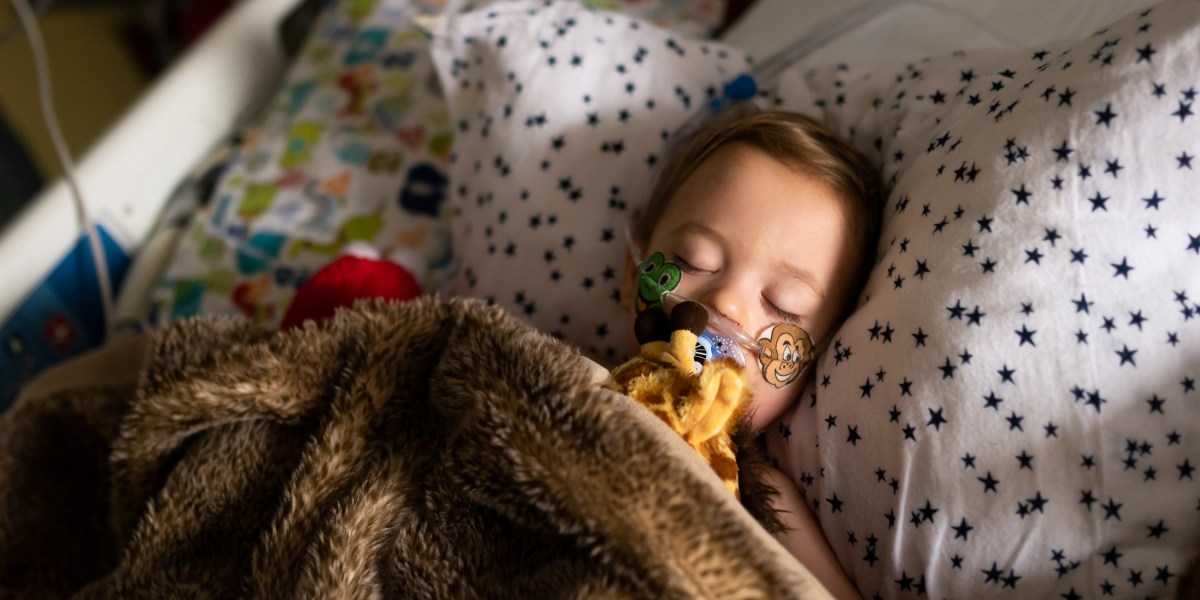This year we were supposed to have more tools than ever before to protect kids from RSV (short for respiratory syncytial virus), including a new shot called nirsevimab that’s given preventively to babies and vulnerable toddlers to protect them from the worst effects of the virus. But now—just as rates of sickness are rising—this medicine is in short supply. The CDC issued an alert last week advising pediatricians to ration doses, reserving them for babies younger than six months and those with underlying conditions that place them at highest risk for severe RSV.
The situation is frustrating to parents and pediatricians alike. “We knew there were going to be many barriers to implementation of nirsevimab that we were anticipating, and pediatricians have been working hard to overcome those barriers, but we were assured by the manufacturer that supply would not be one of the barriers,” said Sean T. O’Leary, chair of the American Academy of Pediatrics’ Committee on Infectious Diseases, in an article on the AAP’s web site.
Demand was higher than expected, says Evan Berland, a spokesperson for Sanofi, which partnered with AstraZeneca to develop and market the drug. He adds that demand topped estimates “based on the most aggressive analogues of historical pediatric immunization launches.”
But why was there such a mismatch between supply and demand in the first place? Shouldn’t forecasting demand for this kind of preventative be relatively straightforward? We know how many babies have been born, and when.
“This was an unusual situation,” says Michael Ganio, senior director of pharmacy practice and quality at the American Society of Health-System Pharmacists. Nirsevimab is the first drug of its kind, so there’s no good baseline for comparison. What’s more, babies whose mothers have been vaccinated within 14 days of giving birth don’t need the medicine, which introduces additional uncertainty to the calculations.
Even with some uncertainty, though, it shouldn’t have been a big surprise that demand would be high. You might not have heard of RSV, but you’ve almost certainly had it. It’s one of the seasonal viruses that cause cold-like symptoms in the fall and winter. For most of us, it’s annoying. Runny nose. Sore throat. Cough. Headache. But for babies and older adults it can cause serious illness. Each year, as many as 80,000 children under the age of five are hospitalized with RSV. And an estimated 100 to 300 children die.
Last year, RSV cases surged in the fall, overwhelming hospitals and prompting some states to call a state of emergency. So pediatricians were especially keen to have nirsevimab as an option this fall. In August, the CDC recommended the treatment for all infants younger than eight months old who are heading into their first RSV season. The agency also recommended the shot for older babies and toddlers up to 19 months who have a higher risk of serious illness due to RSV.
Nirsevimab is a shot, but it’s not a vaccine. It’s a lab-made antibody that provides protection for about five months, the length of the RSV season. The antibody binds to the virus and blocks it from infecting cells, curbing severe disease. In clinical trials, the drug prevented 80% of RSV-related hospitalizations and 90% of ICU admissions compared with a placebo.
Denial of responsibility! My Droll is an automatic aggregator of Global media. In each content, the hyperlink to the primary source is specified. All trademarks belong to their rightful owners, and all materials to their authors. For any complaint, please reach us at – [email protected]. We will take necessary action within 24 hours.


